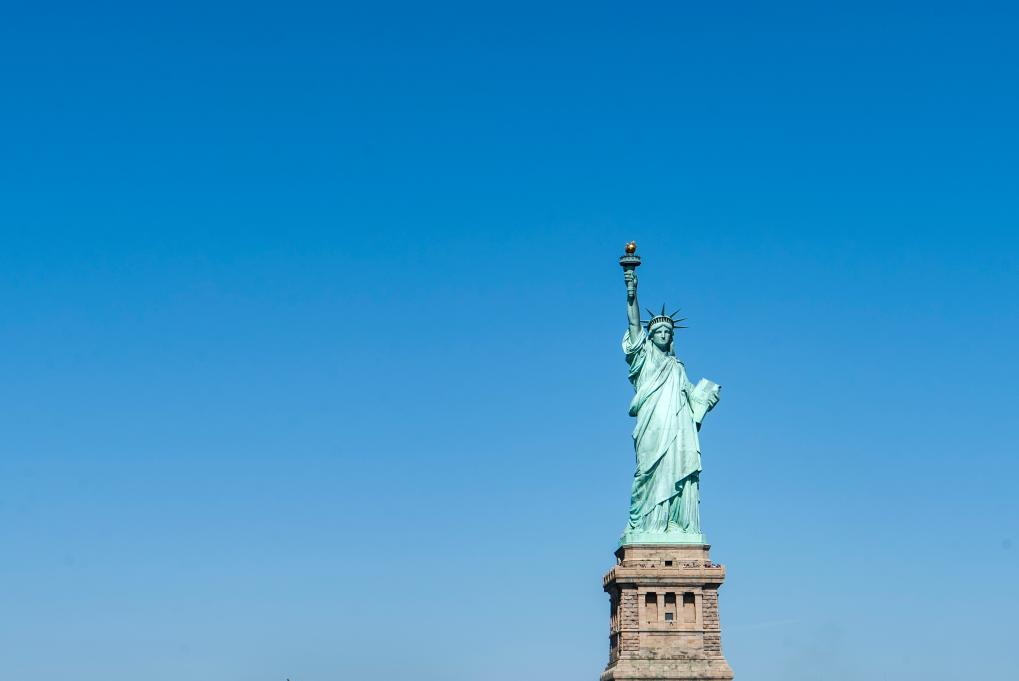
Your college plans include acing your classes and graduating with a degree that launches a career, but you might also dream about traveling. Many university students travel abroad to gain cultural experiences and meet new people while they qualify for special student discounts. How did the pandemic change all that? Here’s how to study abroad in the U.S. post-COVID without compromising your health or safety.
1. Airlines Have Different Requirements
Travel requirements are the first thing you should learn before traveling. Airlines will have different regulations based on the companies’ policies regarding vaccinations, masking and testing. Check airlines for rules like those required of American Airlines passengers, who must present a negative COVID test three days before their flight.
Although there are currently no vaccine requirements for passengers, seven in 10 U.S. fliers want a vaccine mandate to start soon. Even after booking your flight, pay attention to the news, as the rules may change to board your plane. Students should also ensure they aren’t from a prohibited country, which will vary depending on international COVID hotspots.
Luckily, any prohibitions currently in place are related to COVID-19 precautions and not immigration bans, since President Biden recently voided any discriminatory proclamations on the immigration process. International students are welcome — but health and safety procedures might cause some temporary delays in arrival.
2. COVID Laws Change by State
How has COVID changed the U.S. for international students? Look no further than state mandates. Laws regarding COVID safety protocols vary over state lines, so you’ll have to see what’s in effect for your university’s location.
Some states may return to enforcing two-week quarantines for international travelers who aren’t vaccinated. Others may reinstate mask mandates if there’s an upswing of COVID cases. Look up the current laws for your university’s state right up until you leave so you don’t miss any critical updates.
3. Americans Utilize State-Based Resources
Although the Centers for Disease Control and Prevention (CDC) maintains a COVID tracking website, Americans use state-based sites to find specific information for where they live. If you’re attending a university in North Carolina, you’ll get more relevant information for your county and city by checking its tracking website for daily updates.
Other states host similar websites for their residents, so find the state-based COVID dashboard for your future destination. If you get local information, you’ll know whether you should bring a mask to social outings or wait out a COVID wave.
4. Testing Isn’t Always Free
People who wonder what international students should know about the U.S. post-COVID should note the availability of testing. State-sponsored sites can provide tests for free, but that isn’t always the case. Some areas may be too remote or understaffed to maintain widespread testing. You might need American health insurance to cover a trip to an emergency room or urgent care clinic so you don’t have to pay an average of $100-$149 or up to $400 in some hospitals.
5. Sponsor Families May Have Different Beliefs
International university students often avoid expensive room and board fees by bunking with a sponsor family down the street from their school. Before COVID, it might have been an easy part of your trip to manage, but your sponsor family may have different health and safety standards than you.
Depending on where you study, your sponsor family may not believe in the severity of COVID or the protections provided through masking and social distancing. Targeted misinformation causes more regional cases in the South and Midwest because it convinces people not to abide by scientifically proven prevention and treatment measures.
If you want to know how COVID has changed the U.S. for international students, consider who you’ll stay with. No one should have to worry about their sponsor family bringing COVID back to them while they’re also trying to study and graduate from college
.
6. Insurance Companies May Not Cover COVID
You’ll likely get some form of American-based health insurance for the length of your stay. It’s vital to protect against expensive treatment fees, but don’t expect complete coverage for COVID-related reasons. Many insurance providers have begun to drop COVID coverage for testing and treatment without making headlines. Research which companies offer plans that fit your stay and have your back if you catch COVID and need to see a doctor so you don’t return home with medical debt.
Studying in the U.S. Post-COVID
Use these tips to figure out how to study abroad in the U.S. post-COVID without compromising your health. Things will change with time and depending on your university’s location. Protect yourself with health insurance, research travel requirements and regularly look for updates that could affect your trip so your academic plans stay on track for graduation.
More for you
Support Young Creators Like This One!
VoiceBox is a platform built to help young creators thrive. We believe that sharing thoughtful, high-quality content deserves pay even if your audience isn’t 100,000 strong.
But here's the thing: while you enjoy free content, our young contributors from all over the world are fairly compensated for their work. To keep this up, we need your help.
Will you join our community of supporters?
Your donation, no matter the size, makes a real difference. It allows us to:
- Compensate young creators for their work
- Maintain a safe, ad-free environment
- Continue providing high-quality, free content, including research reports and insights into youth issues
- Highlight youth voices and unique perspectives from cultures around the world
Your generosity fuels our mission! By supporting VoiceBox, you are directly supporting young people and showing that you value what they have to say.





